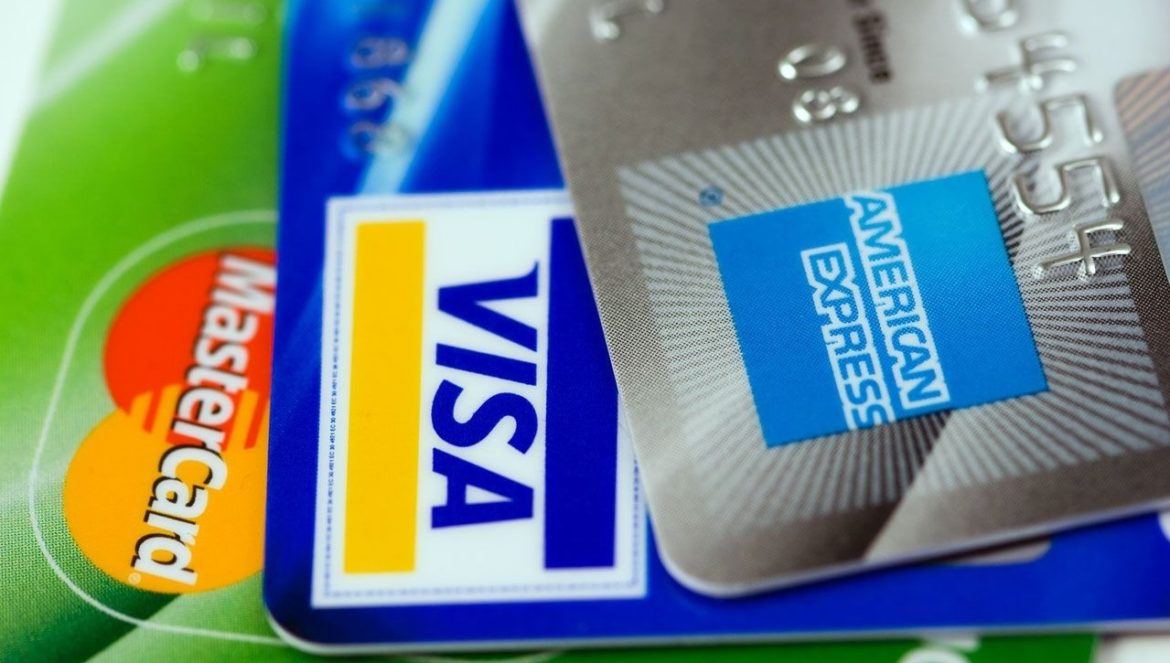Gold has all the potential to go unprecedentedly high. But silver will be gold on
Site:
Precious metals news
 Bank of America Fined $150 Million for Consumer Abuses Including Fake Accounts, Bogus Fees
Bank of America Fined $150 Million for Consumer Abuses Including Fake Accounts, Bogus FeesJul 11, 2023 - 08:08:44 PDT
The announcement is the latest sign that some of the practices exposed by the Wells Fargo fake accounts scandal in 2016 weren't confined to that bank. Bank of America engaged in deceptive practices that hurt hundreds of thousands of its customers in recent years, the Consumer Financial Protection Bureau said Tuesday.
US consumer borrowing slowed to a more than two-year low in May, reflecting the first decline in non-revolving credit since the onset of the pandemic. Revolving credit outstanding, which includes credit cards, rose $8.5 billion — representing a slowdown after sharp gains in the previous two months. Credit cards issued by commercial banks carried a 20.68% rate in May, a record in Fed data back to 1972.
Citigroup on Monday downgraded U.S. stocks in anticipation of a pullback in growth stocks and a recession in the fourth quarter of the year, while betting on beaten-down counterparts in Europe with an upgrade. The brokerage cut its rating on U.S. stocks to "neutral" from "overweight", following a strong rally in the first half of the year. It warned that growth stocks were set for a pullback as the "euphoria" around artificial intelligence enters a more "digestive" phase.
A Bloomberg Intelligence stock index of Chinese lenders has tumbled 14% from this year’s high in May, erasing $77 billion of market capitalization and leaving the industry’s shares on the cusp of their lowest-ever valuations. Already under pressure from China’s monetary loosening and tepid demand, banks are facing renewed scrutiny after authorities asked the sector to extend debt relief to developers as the nation’s housing crisis continues. Some Wall Street analysts also have turned cautious, with Goldman Sachs Group Inc. taking a bearish view on the industry, a move that drew a rare rebuttal from a state-run Chinese newspaper last week.
Stress domestically rose to level 4 in June from 3, Bloomberg’s China Credit Tracker shows, the highest since February. The gauge indicates rising levels of financial strain via a band from 1 to 6. The worsening was caused largely by a pair of builders failing to make a combined 4.4 billion yuan ($608 million) of bond payments, the largest monthly total this year. Other setbacks have included large domestic banks halting purchases of local notes sold in the Shanghai free trade zone. Local-government financing vehicles, the main issuers of such debt and whose debt is a growing risk for China’s economy, could face liquidity tightness from having to seek alternate financing channels.
Americans continued to run up credit card debt in May, but borrowing for big-ticket items tanked. This could indicate that cash-strapped, over-leveraged consumers are reaching the end of the rope.American consumers borrowed another $7.2 billion in May, increasing total consumer debt to a record $4.865 trillion, according to the latest data released by the Federal Reserve.
The Federal Reserve’s top banking regulator, Michael Barr, said he wants Wall Street banks to start using a standardized approach for estimating credit, operational and trading risks, rather than relying on their own estimates. He added that the Fed’s annual stress tests should be rejiggered to better capture dangers that firms can face. The changes stem from a months-long review to align US rules with a set of international standards known as Basel III.
Britain's "zombie" companies are facing extinction due to the inflation crisis and rising interest rates, warns bankruptcy specialist Ric Traynor. Sectors like construction, retail, and hospitality are particularly vulnerable, with insolvencies nearing levels not seen since 2009. Traynor predicts that within the next 18 months, these struggling companies will largely cease to exist, as smaller businesses have already been hit hard, and now mid-market companies are at risk. The Bank of England is likely to continue raising interest rates following record wage increases, as indicated by data from the Office for National Statistics.
Stocks and commodities received a boost on Tuesday as China implemented new economic support measures. However, the optimism was tempered by policymakers cautioning about the likelihood of prolonged high interest rates.
Stocks and bonds had a tough week last week. In his podcast, Peter Schiff talked about the market moves in the context of Fed rhetoric and the jobs reports. He concluded that we could be heading toward another big leg down in bonds, and this bond bear will maul stocks and the dollar.
The Federal Reserve is poised to continue raising interest rates to combat stubbornly high inflation, but the end of its tightening cycle is drawing near, according to U.S. central bank officials. The Fed has already implemented five rate hikes since March 2022, aiming to curb the highest inflation in four decades. While more rate increases are expected this year, policymakers are cautious and relying on data to guide their decisions. The Fed's goal is to sustainably bring inflation back to its target of 2%. The next rate hike is anticipated at the upcoming meeting, with the timing of subsequent increases yet to be determined. Fed Chair Jerome Powell remains open to consecutive rate hikes if necessary to address persistently high inflation.
Jul 11, 2023 - 05:31:14 PDT
Billionaire Chamath Palihapitiya delivers a grim warning of an impending credit crisis that could wreak havoc on corporate America. The massive wall of debt, set to hit by January 2024, threatens trillions of dollars in losses. As interest rates soar, heavily indebted companies in real estate and private equity face a precarious future. With earnings in decline and mounting debt, the risk of breaching loan covenants looms large. The potential fallout could be catastrophic, leading to widespread capital impairment and a dire economic landscape.
Jul 11, 2023 - 05:26:55 PDT
The Congressional Budget Office (CBO) recently released a report projecting a concerning trajectory for US debt. According to the CBO, by 2053, US debt is expected to reach $143.895 trillion, almost three times the projected GDP of $79.5 trillion. This substantial debt burden is anticipated to hinder economic growth, increase interest payments to foreign debt holders, and pose significant risks to the fiscal and economic outlook. Additionally, policymakers may face limitations in their policy choices due to the mounting debt.
Global shares rose and the dollar eased on Tuesday ahead of U.S. inflation data that could warrant a quicker end to Federal Reserve rate hikes. Additionally, the prospect of China propping up economic growth helped lift commodities like oil and copper. Markets are awaiting U.S. inflation data on Wednesday to see if price pressures are continuing to moderate, which could provide clues on the interest rate outlook. The MSCI All-World index rose 0.3%, with gains in European shares, while U.S. stock index futures also showed modest gains. Investors are closely watching the upcoming data amid comments from Federal Reserve officials and the potential impact on monetary policy. The dollar index declined 0.1% on the day, partly influenced by China's role in supporting economic growth.
Jul 10, 2023 - 12:55:41 PDT
The BRICS countries are making progress towards launching an alternative currency backed by gold, as confirmed by Russia. The official announcement is expected to be made at the upcoming BRICS summit in Johannesburg, South Africa, in August. This initiative has gained significant interest, with more countries expressing their desire to join the group. According to Willem Middelkoop, a former journalist, 41 countries have already applied for BRICS membership.
Jul 10, 2023 - 12:52:42 PDT
An increasing number of countries are repatriating gold reserves as a protective measure against potential sanctions. According to a survey by Invesco, over 85 percent of sovereign wealth funds and central banks believe that inflation will be higher in the coming decade. This has led to a reevaluation of investment strategies, with gold and emerging market bonds being viewed as favorable options. The freezing of Russia's reserves by the West in response to the Ukraine invasion has further driven the shift towards holding reserves at home. Geopolitical concerns and opportunities in emerging markets are also prompting diversification away from the US dollar.
Prior to 1913, there was no income tax, yet the country still experienced growth and prosperity. The government's ability to effectively build and maintain infrastructure was called into question. The frustration was expressed over the numerous taxes imposed on individuals, including sales tax, gasoline tax, property tax, utility taxes, hotel taxes, garbage taxes, and various other taxes and fees. Despite the heavy taxation, little benefit was perceived. The upcoming implementation of climate change taxes was mentioned as an additional burden on taxpayers. This perspective led to a diminished trust in the government and a belief that it should have limited power.…
US growth remains well below Federal Reserve projections, despite massive monetary and fiscal stimulus. Negative real wage growth and high debt levels indicate the failure of the trickle-down effect. Consensus real GDP growth for 4Q23 is only 0.2%, far below projections. The Biden administration's optimistic assumptions still result in a substantial deficit of 5% of GDP in 2032. Neo-Keynesian budget approaches leave households with less real money and contribute to increased debt and inflation. Stimulus measures like the American Rescue Plan have not delivered the intended benefits, with households experiencing a decline in liquid assets. Government expenditure programs exacerbate inflation and recession risks by artificially tightening labor markets and supply chains. Clean energy and infrastructure spending programs, already thriving sectors, add to inflationary pressures and financial strain. The Federal Reserve's attempts to mitigate inflation may inadvertently lead to a recession. In the face of fail...
Jul 10, 2023 - 12:15:19 PDT
Bidenomics fails to deliver economic revival as inflation crisis hits hard. Negative real-wage growth persists, forcing consumers to deplete savings and accumulate record credit-card debt. Dollar stores and dumpster diving become survival strategies amid rising food costs. Google searches for "pawn shop near me" and "is dumpster diving illegal" reach record highs, indicating financial strain. Despite evidence of struggling consumers, the Biden administration maintains an optimistic narrative. The middle class continues to decline, posing challenges for upcoming elections.
Jul 10, 2023 - 12:11:48 PDT
The bursting of the housing bubble and its serious implications serve as a reminder that we haven't learned from past mistakes. Home values have plummeted by $108.4 billion, leading to negative equity for homeowners. Washington state has seen an average decline of over $74,000 in home values. The trend of negative equity is becoming a concern in various regions across the nation. While Florida's home prices have risen due to population influx, major cities and blue states are likely to experience falling home prices. Additionally, delinquency rates for commercial real estate loans are rising rapidly. Corporate bankruptcies have surged by 93 percent compared to the same period last year. These signs of economic trouble, including the record-high searches for pawn shops and dumpster diving, indicate the worsening situation. Despite these challenges, assurances from leaders like Joe Biden attempt to convey optimism.






